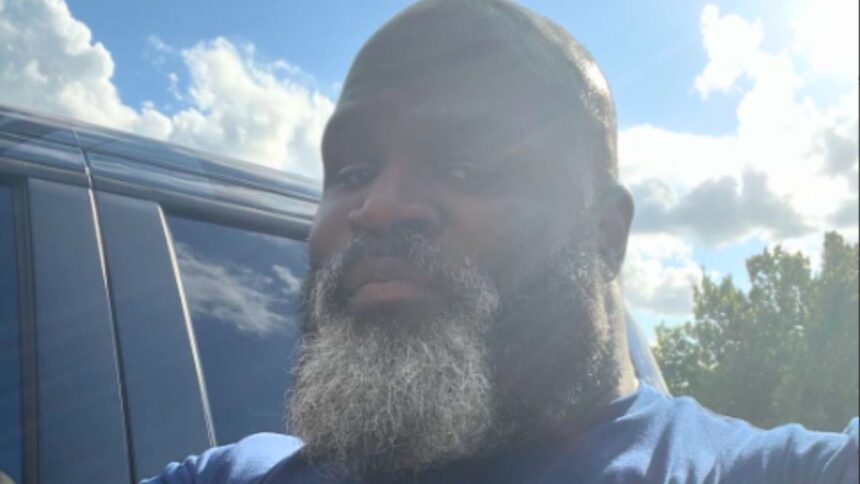Although the wrestling scene is well-known for its showmanship, behind the gloss and splendour of WWE is a legacy that once was rather important in preserving backstage discipline: Wrestler’s Court. Fans and wrestlers both murmured about the enigmatic and sometimes contentious “court” for years, with tales of great figures like The Undertaker, JBL, and Edge serving as judges in this odd locker room tribunal. Still, many insiders and supporters see it as little more than a means of derision and, occasionally, bullying.
WWE Hall of Famer Mark Henry recently spoke on the “Huge Pop” podcast about these impressions, clearing the record on what Wrestler’s Court actually was and why it shouldn’t be regarded as a tool of harassment.
A System for Not Bullying Locker Room Justice
“It’s meant to entertain, not bullying,” Henry said with much passion. He said that Wrestler’s Court was intended to keep peace in a locker room full of strong personalities. In the high-stakes environment of professional wrestling, where egos can occasionally collide, this unofficial court system offered a means of release to help to avoid conflicts from boiling over.
Many of the complaints about Wrestler’s Court, Henry observed, stem from misinterpretation of its goals. Often a light-hearted approach for the locker room to control itself, it was not a venue for hazing; rather, it let wrestlers hold one another responsible in a somewhat humorous way. This helped prevent further major conflicts that may otherwise turn into actual crises.
All You Needed Was a Bottle of Jack Daniels.
Henry said one of the most common misunderstandings was that Wrestler’s Court was a strict, austere process where careers were either created or destroyed. Actually, Henry said, it was significantly more relaxed than most people believe. Often a revered veteran like The Undertaker, the “judge” could always be paid. He laughed. Henry added, “all you had to do was drop about 23 bucks, 25 bucks, go and buy a bottle of Jack Daniels.”
Henry gave basic advise to individuals who took the proceedings too seriously or felt uneasy: relax and find the comedy in it. “The judge could always be bought,” he said, grinning to suggest that it was all just a huge inside joke for the lads behind-stage. Wrestler’s Court was designed to remind everyone to have some fun in an otherwise demanding career, not to denigrate or humiliate anyone.
Not everyone viewed it that way
Though Henry has happy memories, not every wrestler has the same ones of Wrestler’s Court. There were critics even while stars like Matt Hardy, The Miz, and former WWE writer Brian Gewirtz chuckled about their “prosecutions” over the years. Never one to hold back, CM Punk publicly attacked Wrestler’s Court, writing, “the most insecure small dk energy average white man embarrassment to the wrestling business st of all time.”
Punk’s contempt for Wrestler’s Court suggests a more general discussion about the changes in the backstage scene for wrestling. His harsh criticism emphasises how, for some, the custom seemed to be just antiquated locker room politics. Though they remain a vibrant chapter in WWE history, traditions like Wrestler’s Court have been left behind as wrestling’s locker room scene gets more inclusive and professional.
A Changing Society
Backstage environment in WWE has changed dramatically in 2024. Phased out as the corporation adopts a more corporate, HR-driven structure, Wrestler’s Court is a relic from a bygone age. There is less space for the rough-and-tumble customs of past as WWE is becoming a worldwide entertainment giant and the company draws fresh kinds of talent. Industry experts who guarantee that behaviour behind-the-scenes is as polished as the program itself now rules the WWE locker room instead of a court of wrestlers.
For legends like Mark Henry, though, recollections of Wrestler’s Court will always be flavoured with nostalgia. It was, as he claims, a method for the lads to let off steam—a sort of mock trial whereby wrestlers could ridicule one another without things getting too serious. And even if not everyone remembers it favourably, WWE’s backstage mythology is permanently ingrained with it.
The Unwritten Guidelines of Wrestling
Though Wrestler’s Court is no more, the brotherhood and camaraderie it characterised still permeates WWE’s hallways. The company changes along with its perspective on managing its more vibrant personalities. For those who lived through it, the antics of Wrestler’s Court were sometimes a rite of passage—a sign that you were one of the guys—even if they would seem weird or even cruel to outsiders.
Still, it’s crucial to differentiate the myth from the reality as Mark Henry’s remarks serve to remind us. One bottle of Jack Daniels at a time, Wrestler’s Court was about maintaining the peace in a high-stress environment—not about bullying or pulling people down.




